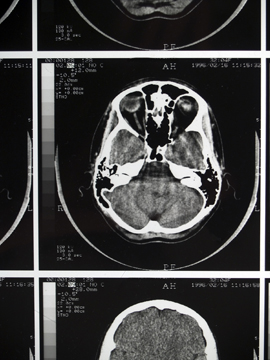
Will You Be Able to Return to Work?
Time remains a crucial factor in prevention, treatment and rehabilitation of strokes. Prompt treatment strategy depends on the underlying cause of the condition and whether the stroke is hemorrhagic or ischemic in nature. Starting a treatment and rehabilitation (rehab) program as soon as possible after a stroke increases your chances of recovering some abilities and of preventing further worsening of your condition. The ultimate goal of treatment and rehabilitation program is to prevent further episodes of strokes.
Depending on the cause, nature, and severity of your stroke your health professional will select the best possible treatment regimen for you. Medications, surgery, hospital care, and rehabilitation procedures are all well-accepted treatments of stroke.
Medications in stroke patients include use of tissue plasminogen activator (tPA) to dissolve the clot causing obstruction within blood vessels. It will help those patients having strokes due to a clot and it will restore blood flow to the brain by dissolving the clot. However, this medication is usually not given in patients with hemorrhagic stroke and therefore prompt diagnosis of exact cause of stroke is crucial for a successful therapy. Other anti-platelet medications like aspirin or aspirin combined with other such drugs may also be given to dissolve clots. Other medications may also be given to control uncontrolled high blood pressure, blood sugar, fever, and seizures.
Sometimes, treating a stroke means treating the heart problems as various kinds of heart problems contribute towards high stroke risk. Your health care professional will guide you in the treatment of any cardiovascular problem you are having along with treatment of the stroke itself. Such treatment will prevent clot formation within the heart and its progression towards the brain for another stroke attack.
Surgery is often not required in most cases but may be performed when there is a large amount of bleeding, and the condition of the patient is rapidly deteriorating. Surgery is performed to remove blood accumulated within the brain and to lower pressure inside the head.
Will I be Able to Work after Stroke?
It might not be possible to give an exact answer here as strokes can affect different people in different ways. It may leave some with physical disabilities or limitations; some with impaired cognitive functions; some with mild to severe speech problems such as Aphasia; and some with mental health problems.
Getting back to work is the main objective of many stroke survivors, especially young patients. Whether you will be able to get back to work will depend on many factors including type of stroke you had, its severity, treatment, rehabilitation efforts, nature of work you have been doing in the past, your age, and your employer’s attitude towards your condition.
Full-blown stroke usually results in serious disabilities and if you had a stroke in the past and are unable to work, you can file for Social Security Disability benefits. A stroke is one of the medical conditions listed in the “blue book” by the Social Security administration, so if your stroke meets the description in the listing you will likely be declared disabled. Anyone who has had a stroke and is not able to work should file an application for Social Security Disability or SSI benefits.










